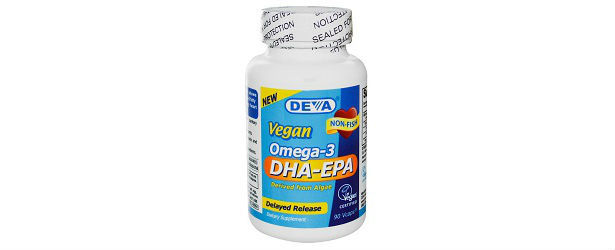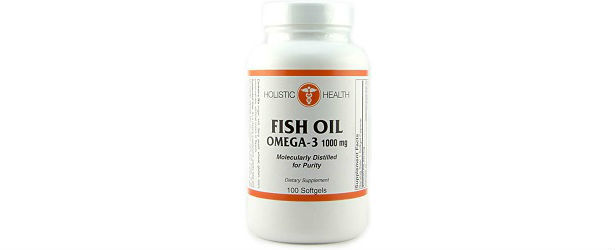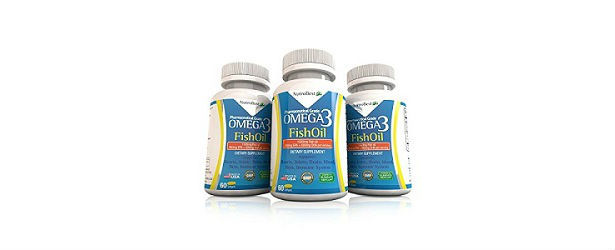
The “Good Fat” Omega-3 Benefits
Omega 3 fatty acids are considered “good fats,” and actually don’t cause you to gain fat. In our diets today we have “good fats” and “not so good fats.” In some ways they work together to help our body, and the “good fats” have a number of benefits all on their own. Let’s take a look at “the good fat” Omega 3 benefits.
 Omega 3 fatty acids are made up of 3 different beneficial fatty acids; DHA, EPA, and ALA. We don’t produce these ourselves, so we need to get them from our diet. These essential fatty acids are found in fish and some healthy oils like, flax seed oil.
Omega 3 fatty acids are made up of 3 different beneficial fatty acids; DHA, EPA, and ALA. We don’t produce these ourselves, so we need to get them from our diet. These essential fatty acids are found in fish and some healthy oils like, flax seed oil.
Getting Omega-3 benefits is tricky in the United States, because we don’t eat a lot of fish. Fish that has high levels of mercury cancels out the benefits of Omega3, and eating too much Omega6 fatty acids can also cancel out the benefits. Omega6 fatty acids are a good fatty acid in moderation. We need to eat more Omega3 fats and less Omega6. There has to be about a 3:1 balance, 3 parts Omega3 to 1 part Omega6. Omega6 fatty acids are found in; chicken, eggs, vegetable oils and cereal.
Eating just the right combination of these fatty acids can benefit our bodies in many ways.
Health Conditions that Benefit from Omega 3
Everyone needs Omega3 fatty acids. Even pregnant women can give their growing babies a boost in life by getting enough Omega 3 during pregnancy. Newborns, babies, children, teenagers, adults, and elderly people all need Omega3. It is a good idea to take a look at the foods you are eating and make sure you are getting enough of this nutrient. If you have a health issue that needs high levels of Omega3, make sure you are eating enough or see your doctor about taking a supplement.
Health issues that benefit from Omega3 fatty acids are:
 Cardiac Disease
Cardiac Disease
If you have heart disease, getting enough Omega3 fatty acids can help relieve the inflammation in your blood vessels and circulatory system. It can reduce your blood pressure, keep your blood thin, and even heal damaged cardiac tissues. Cardiac surgeons encourage you to take Omega3 supplements after open heart surgery to help you heal faster and reduce the risk of complications.
Auto-Immune Disease
Omega3 has excellent anti-inflammatory properties. In auto-immune disorders, the body attacks itself like an injury or illness. This results in inflammation and damage to the body’s own tissues.
Omega3 increases the production of “resolvins” that help stop this inflammation and attack. Omega3 can really lower the “flares” people experience with auto-immune disorders.
Eye Disease
Research shows that a diet high in Omega3 can lower the risk of macular degeneration. There is also evidence that it reduces the incidence of all age related eye disorders.
Memory Loss
Omega3 is a building block of healthy brain cells. There are proven results with cognitive function and memory. It can help build infant brain cells and improve memory in people with dementia and Alzheimer’s. Healthy brains need Omega3. Studies even show that people with severe brain injury improve with the use of Omega3.
Depression
The neurons in the brain utilize a small amount of Omega3 to function properly. When there is not enough Omega3 present, neurons can become disrupted and nervous system issues like depression and anxiety tend to increase. While Omega3 is not a cure for depression, it may be helpful with symptom relief.
How to Find Omega 3 in Foods
 You can find Omega3 fatty acids in fish and shellfish. There is also Omega3 in flax seeds, walnuts, canola oil, and soy products. It is important to increase your intake of these foods which are not very common in the American diet.
You can find Omega3 fatty acids in fish and shellfish. There is also Omega3 in flax seeds, walnuts, canola oil, and soy products. It is important to increase your intake of these foods which are not very common in the American diet.
Be careful of seafood that contains a high amount of mercury. Mercury can cancel out the healthy benefits of Omega3 fatty acids and is also not good for your health. Pregnant women should not eat any fish containing mercury because of risk of damage to their growing baby.
A good diet that increases Omega3 is the Mediterranean diet. Try to eat more healthy oil and more nuts, while cutting down on red meat. Red meat is higher in Omega6 fatty acids that can cancel out the effects of Omega3. Another good diet is the Japanese diet, which is higher in fish. Fish has the highest amount of Omega3 of all the Omega3 containing foods. Two servings of fish every week is enough to get good amounts of Omega3 into the diet. Try eating these fish; salmon, tilapia and haddock are good fish to eat for Omega3.
Conclusion
Getting enough Omega3 means just making some small dietary changes. When you eat the right amounts of this essential nutrient you are giving your body what it needs for a healthy body and mind. Certain health conditions can also improve with enough of this fatty acid. The right balance of fatty acids can increase Omega3 benefits and improve your health. Make sure you talk to your doctor before using an Omega3 supplement.
TOP 5
OMEGA3Supplements |
|||||
| Omega3 Premium | Dr. Sears OmegaRx | Purity Products | Nordic Naturals | Nature Made | |
|---|---|---|---|---|---|
| 1 | 2 | 3 | 4 | 5 | |
| Price (1 bottle) Price (4 bottles)(*best value) |
$49.95 $138.00 |
$50.95 $305.70 |
$46.95 $281.70 |
$69.95 $419.70 |
$25.95 $155.70 |
| Overall Rating | 99.85% | 89.20% | 82.60% | 76.30% | 72% |
| Effectiveness |





|





|





|





|





|
| Speed of Results | Extremely Fast | Good | Average | Average | Slow |
| Quality of Ingredients | Premium | Good | Good | Average | Unknown |
| Customer Satisfaction Evaluation | 99.40% | 84% | 79%% | 72%% | 61%% |
| Safety Evalutation | Safe for Use | Safe for Use | Safe for Use | Safe for Use | Safe for Use |
| Customer Service Rating |





|





|





|





|





|
| Reorder Rate | Highest | Good | Good | Average | Average |
| Return Policy | Risk Free | Risk Free | Risk Free | No guarantee | Unclear |
| Success Rate | 99.40% | 81.10% | 74% | 71.20% | 62% |

 Subscribe Now
Subscribe Now











